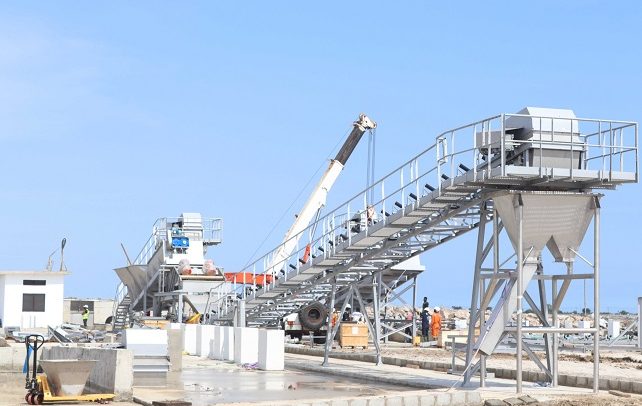Parliament has adopted the Atta Akyea Committee Report, shedding light on the long-standing disputes plaguing Electrochem Ghana Limited’s salt mining operations in the Songhor area, after a contentious debate on the House floor.
This was done at an emergency sitting last week during which the House also tackled a slew of pressing matters, including a crucial Financing Agreement with the International Development Association, tax exemption requests for the One District One Factory (1D1F) initiative, and the Ghana Financial Stability Fund.
Members of Parliament (MPs) unanimously agreed to adopt the findings of the Atta Akyea Committee, which probed the contentious issues surrounding Electrochem Ghana Limited’s operations in the Songhor salt mining area.
Defending the report, Majority Chief Whip Frank Annoh-Dompreh emphasised the importance of Electrochem’s investment in the area, describing it as the largest of its kind in West Africa.
According to him, the company is led by a Ghanaian investor with strong ties to the local community, which has historically struggled to attract and retain significant investment.
He argued that over 90% of traditional leaders in the Songhor area support the investment, despite concerns raised by a minority of citizens.
“More than 90% of the traditional leadership in Songhor are in support of this investment,” Annoh-Dompreh, who is also the MP for Nsawam Adoagyiri, stated.
“We cannot dismiss the concerns of some citizens, but it is essential to recognise that the investor has made considerable efforts to engage with the community and has even made some of the land available to locals for their own investment opportunities,” he asserted.
Mr. Annoh-Dompreh urged his colleagues to thoroughly review the report, noting that many of its recommendations are already being implemented.
He also stressed the importance of the investment, highlighting Electrochem’s role in reviving the long-neglected salt industry in the area, which had been abandoned by previous investors.
MP for Asawase, Mohammed Mubarak Muntaka, also spoke in favour of the report, emphasising that the salt resources in the area, like other mineral resources in Ghana, are not personal property but belong to the state.
He acknowledged the concerns of local residents, but urged them to understand that the exploitation of natural resources, including salt, is regulated by national laws and is intended to benefit the entire country.
Muntaka further explained that the committee had engaged extensively with local stakeholders and the company, addressing various concerns raised by the community, including the protection of cemeteries and the development of certain areas.
He expressed disappointment that some MPs had not fully read the report, and urged them to do so to appreciate the efforts made to balance the interests of all parties involved.
Despite opposition from some MPs, who argued that the concerns of local residents were not adequately addressed, the report was ultimately passed, paving the way for continued operations by Electrochem Ghana Limited in the Songhor area. The approval marks a significant step in the ongoing debate over the company’s role in the local economy and its impact on the community.
A Daily Guide Report


